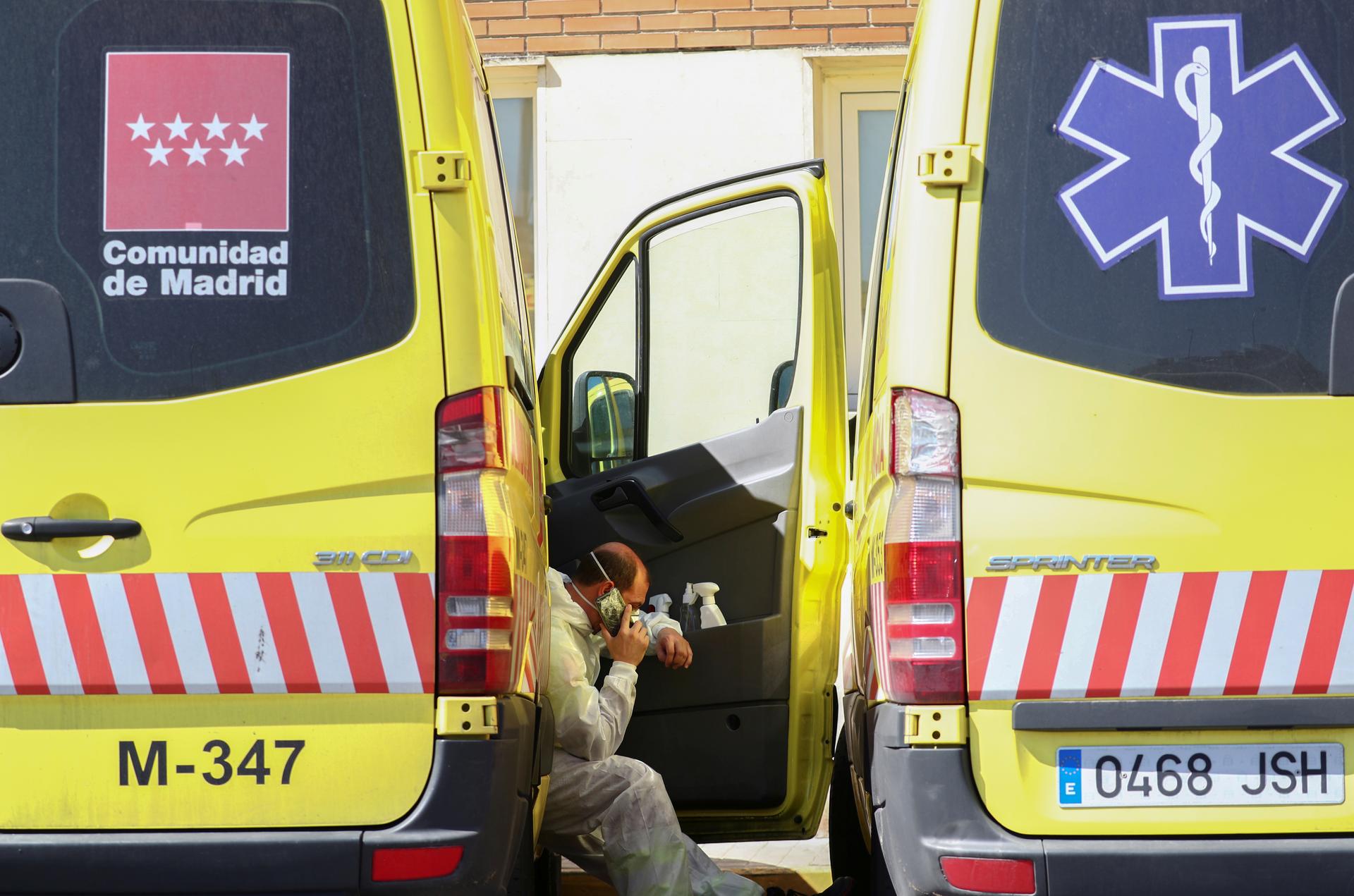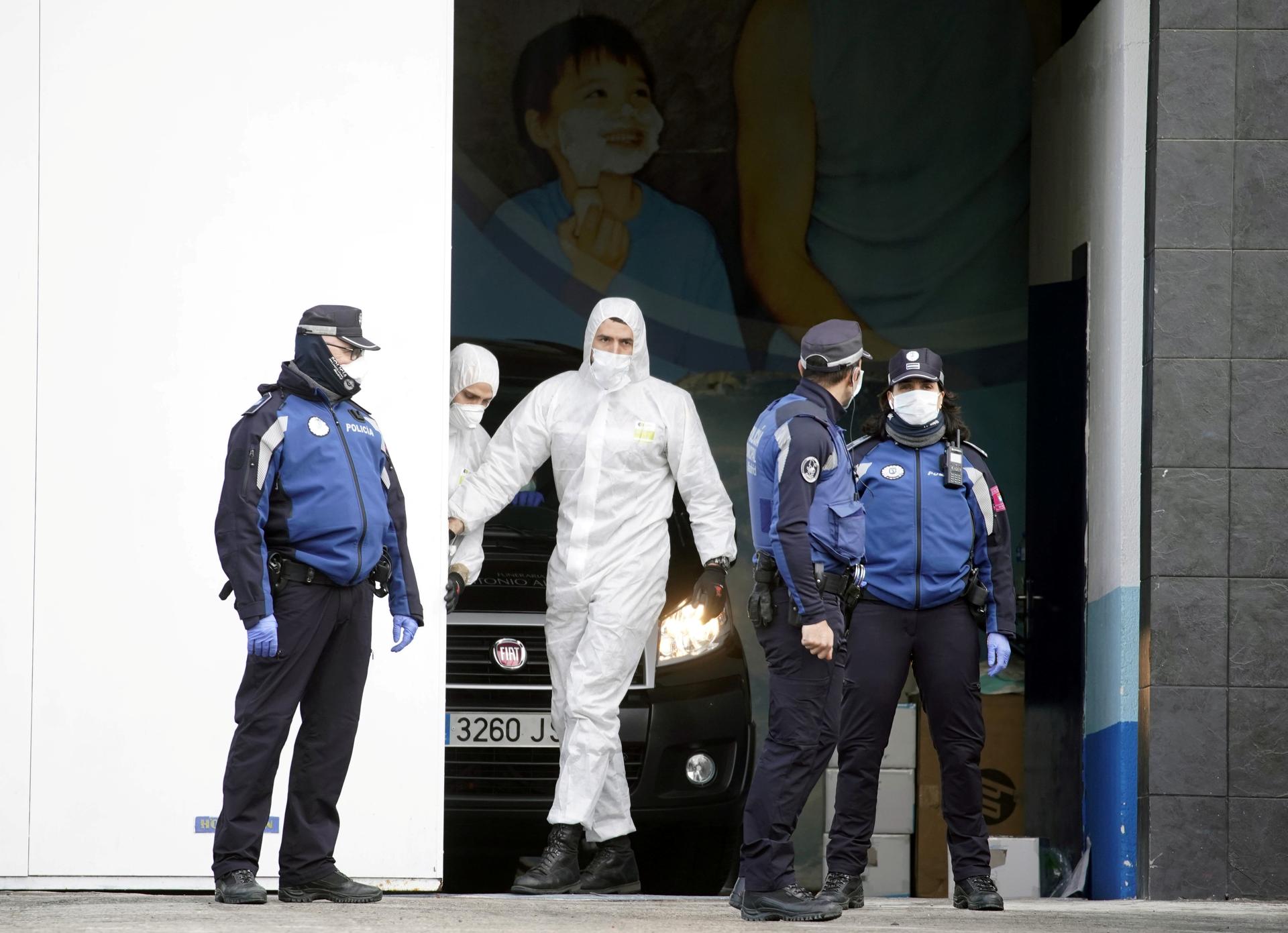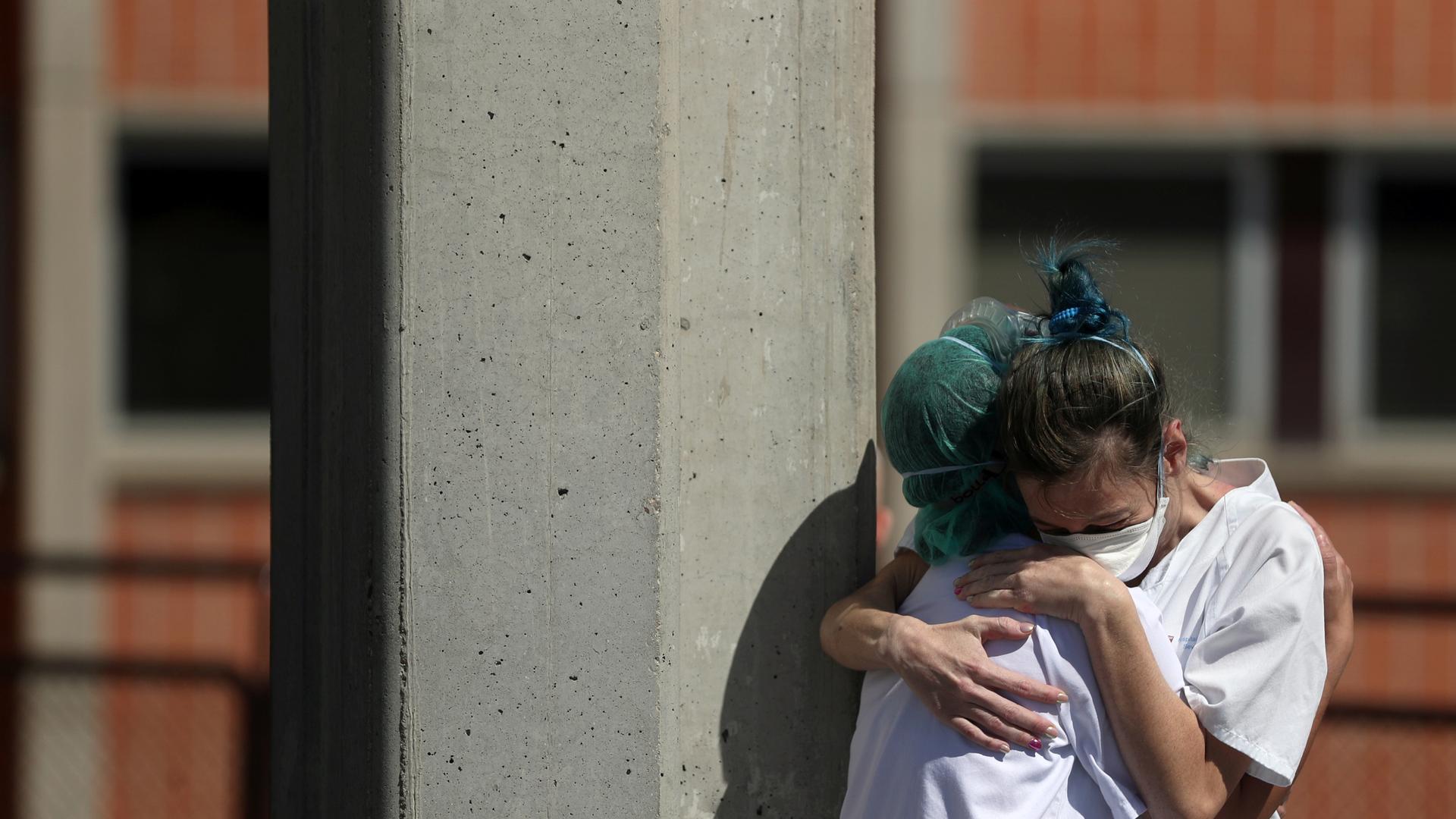Medical workers hug each other outside the emergency rooms at Severo Ochoa Hospital during the coronavirus disease (COVID-19) outbreak in Leganes, Spain, March 26, 2020.
After another exhausting shift at Madrid’s Ramón y Cajal hospital, nurse Corin Pira finally allowed herself to cry — in the shower. “You feel so frustrated that you start to shed all the tears that you can’t at the hospital because you can’t cry there — tears are also a source of contamination,” she said.
Spain has overtaken China to report the third-highest number of coronavirus cases worldwide: close to 95,000. About one in seven of those cases are health workers, and those on the frontlines feel abandoned by the government and hospital authorities.
Related: Under lockdown in Spain, hotels transform into field hospitals
Madrid is the epicenter of Spain’s coronavirus outbreak, registering almost half the 8,189 deaths so far. On Pira’s ward, six of the 18 nurses are no longer working after catching COVID-19, and one is in a critical condition with pneumonia typical of severe cases.
Related: How US doctors and nurses must ration care amid coronavirus
Her frustration is felt in hospitals across Europe, as public health systems with budgets cut year after year are struggling to adapt to a pandemic that requires more beds, material and equipment than anticipated.

“We are supposed to have protective kits with one plastic apron and another made of paper every time we walk into a patient’s room. But we don’t have enough of the plastic ones, so we are supposed to put them in a paper bag, so they can recycle them.”
The lack of protective gear has left Pira and her colleagues worrying constantly about contaminating each other. “We don’t have protective equipment,” she told The World. “We are supposed to have protective kits with one plastic apron and another made of paper every time we walk into a patient’s room. But we don’t have enough of the plastic ones, so we are supposed to put them in a paper bag, so they can recycle them.”
Related: This hotline helps ‘exhausted’ health care workers fighting COVID-19
She is given one fitted mask with filters per week, but the sheer number of cases she is dealing with means it reeks of sweat once a single shift is over.
After working for 30 years as a pediatric nurse, Pira thought she had seen some of the toughest possible cases — including children undergoing treatment for cancer.
But nothing could prepare her for the silence she encounters in the ward. “There are two patients to a room and they don’t speak to each other. They just stare at the wall and don’t ask you for anything,” she said.
Related: WHO fills gaps to fight COVID-19 in countries with weak systems
The psychological toll of the virus is enormous, she believes. “I think they feel as though they are bad — like they have done something wrong to their families and to society. That it’s their fault they have this illness,” she said.
The Ice Palace
As Pira’s hospital battles chaos, Madrid’s morgues are overwhelmed with bodies.
Some of the city’s victims now lay on the ice of a popular skating rink in the east of the city. In normal times, the Palacio de Hielo, or Ice Palace, is a place where small children take their first, tentative glides on rented skates, and teenagers from the local high school flirt in the food court.
Now, soldiers take bodies from the hospitals, load them into trucks, and take them to the ice rink to await burial or cremation.

Although the shopping mall housing the Ice Palace is closed, the supermarket and pharmacy in the complex remain open.
Clemente Ramon picks up groceries in mask and gloves, and can’t help but shiver at the thought of the bodies lying just through the wall. “It’s not the right place for this. We also have a conference center close to here that they have turned into a field hospital, and I just feel there are places that are more suited to this problem, not right here in a city neighborhood,” he said.
Ramon is responsible for buying food while his wife, a cancer patient, stays inside 24 hours a day to avoid contracting COVID-19. “Let’s just hope this is over soon,” he said, hurrying off.
It is harder for Francisco Sanchez Robles to forget about the Ice Palace.
He is the rink manager and has had to watch the army transform the space for its grim new function.
“Every weekend, the rink would hold training sessions for our skating teams. Then we would also have classes, and then it would open up to the public for leisure skating,” he said.
He is trying to remain hopeful about the future — when the rink might open its doors to families once again. “There will be people who will be reluctant. But time smooths out everything. Time heals,” he said.
